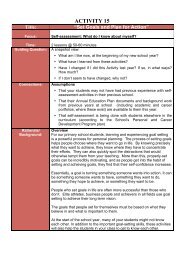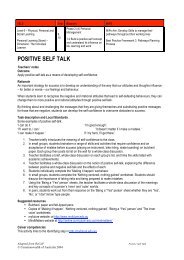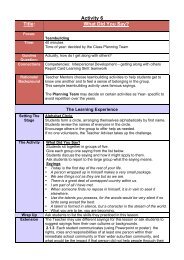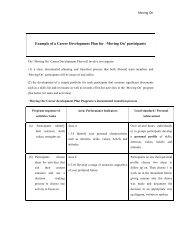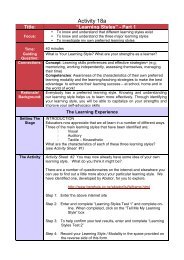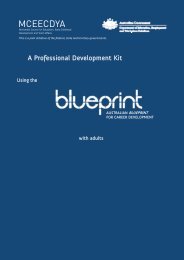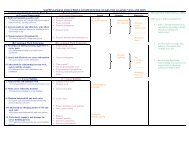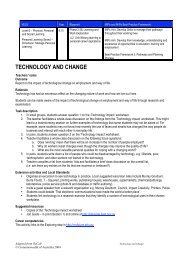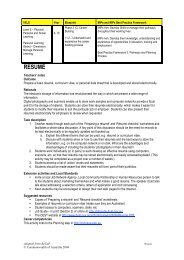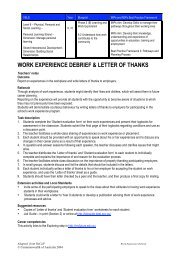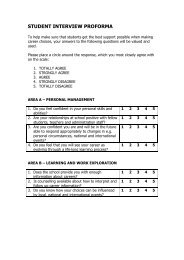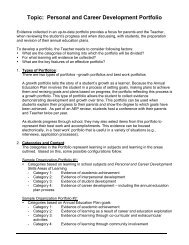Area A 1.3 workbook - Blueprint - Australian Blueprint for Career ...
Area A 1.3 workbook - Blueprint - Australian Blueprint for Career ...
Area A 1.3 workbook - Blueprint - Australian Blueprint for Career ...
You also want an ePaper? Increase the reach of your titles
YUMPU automatically turns print PDFs into web optimized ePapers that Google loves.
<strong>Career</strong> Competency: <strong>1.3</strong> : Develop abilities to maintain a positive self concept Page5<br />
Per<strong>for</strong>mance Indicator: <strong>1.3</strong>.2 Understand the importance of giving and receiving feedback to maintaining<br />
a positive self concept<br />
Per<strong>for</strong>mance Indicator: <strong>1.3</strong>.7 Demonstrate giving and receiving feedback in ways that build a positive self<br />
concept<br />
Background in<strong>for</strong>mation: Tips <strong>for</strong> Giving and Receiving Feedback<br />
• Giving and receiving feedback is a great way <strong>for</strong> you to improve your understanding of how<br />
people interact and communicate with each other<br />
• A lot of people find communicating well does not come naturally<br />
• Be patient!<br />
• The more you practice, you should find that you can give and receive feedback more openly and<br />
more constructively<br />
• Giving and receiving feedback should be based on trust, honesty, and truthfulness<br />
Giving Feedback- DOs and DONT’S<br />
DO<br />
• Describe the behaviour, not the person<br />
• Speak <strong>for</strong> yourself only and restrict your feedback to things you know <strong>for</strong> certain<br />
• Choose an appropriate time and place<br />
• Your only motive should be to be helpful<br />
• Focus on recent behaviour- don’t get hung up on the past<br />
• Check with the other person that they have understood your feedback and taken it in the way<br />
you intended<br />
DON’T<br />
• Don’t use labels<br />
• Don’t judge or be judgmental<br />
• Don’t exaggerate<br />
• Don’t overload the other person by giving them too much in<strong>for</strong>mation<br />
Receiving Feedback<br />
• Listen Carefully<br />
• Avoid becoming defensive and over-reacting<br />
• Take note of any questions or disagreements<br />
• Restate what you think you hear<br />
• Ask questions to clarify and restate again<br />
• Ask <strong>for</strong> examples and restate again<br />
• Acknowledge valid points<br />
• Acknowledge feedback<br />
• Take time to understand and sort out what you have heard<br />
• Gather more in<strong>for</strong>mation from other sources and/or by observing your own behaviour and<br />
reactions to it<br />
• When appropriate modify your behaviour and evaluate the outcome<br />
Personal and Result Orientated Feedback




